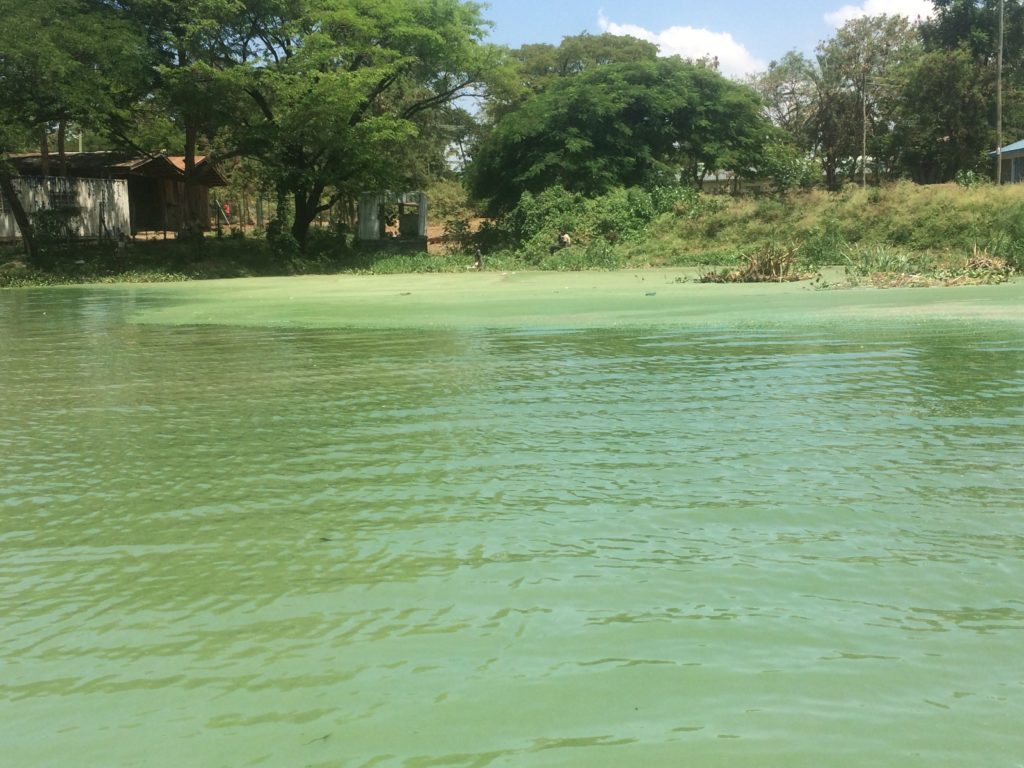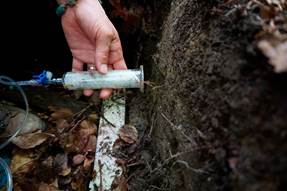Podcast: Play in new window | Download
Subscribe: Apple Podcasts | Spotify | Email | RSS | More
Both photos courtesy of Dr. Taryn Bauerle.
In this episode of Locally Sourced Science, we explore two phenomena related to climate change that may have significant effects on our local environment.
According to the U.S. Drought Monitor, (https://droughtmonitor.unl.edu/) Tompkins County and much of the Finger Lakes have been experiencing moderate drought conditions. Our first segment focuses on the ways that plants respond to drought. Esther Racoosin speaks with Dr. Taryn Bauerle, Associate Professor in the Cornell School of Integrative Plant Science, about her studies on how plants respond to stresses from water deficits.

In our second segment, we hear about the environmental implications of climate-related increases of harmful algal blooms in different ecosystems. Janani Hariharan talks to Dr. Katie Fiorella from Cornell University. Dr. Fiorella was recently awarded a National Science Foundation grant to study the economic and health effects of algal blooms on human communities in Kenya. We also hear about local algal blooms in the Finger Lakes area, and what they mean for our ecosystem.
In our last segment of the show, Candice Limper provides a short history of the Nobel Prize (https://www.nobelprize.org/) and a quick glimpse into this year’s Nobel Prize in Chemistry, shared for the first time by two female scientists, Dr. Emmanuelle Charpentier and Dr. Jennifer A. Doudna.
————-
Show Producer: Liz Mahood
Associate Producer and interview of Dr. Taryn Bauerle: Esther Racoosin
Interview of Dr. Katie Fiorella: Janani Harihanan
History of Nobel Prize: Candice Limper
Music: Joe Lewis; Blue Dot Sessions

